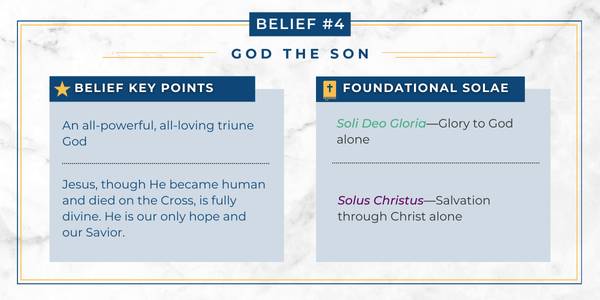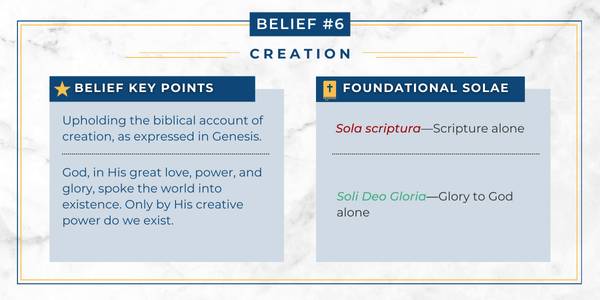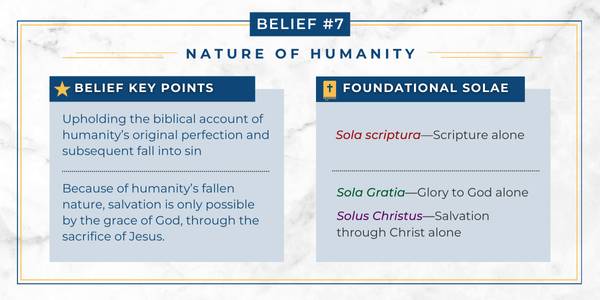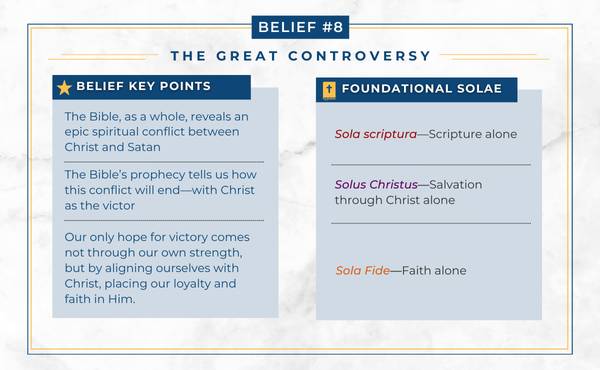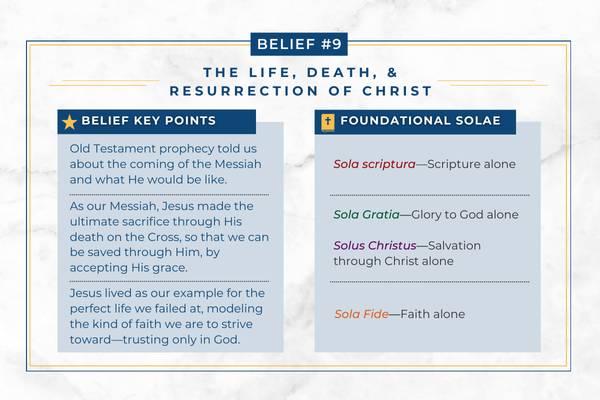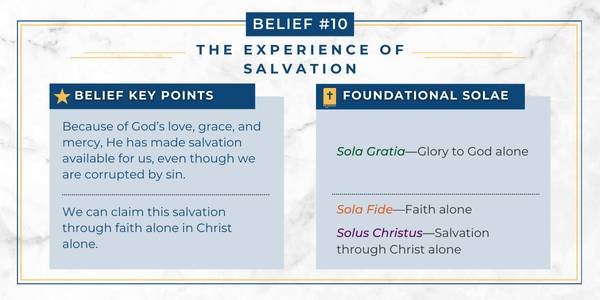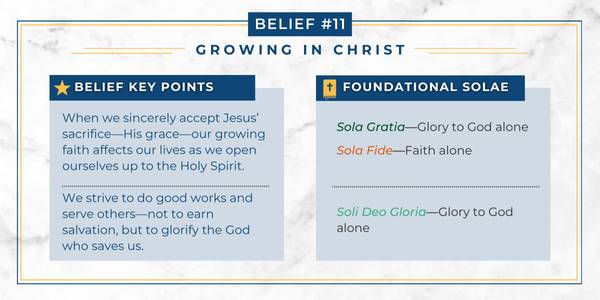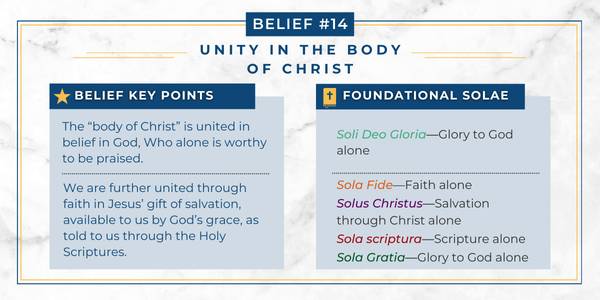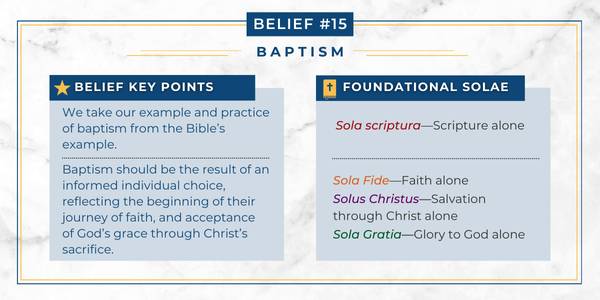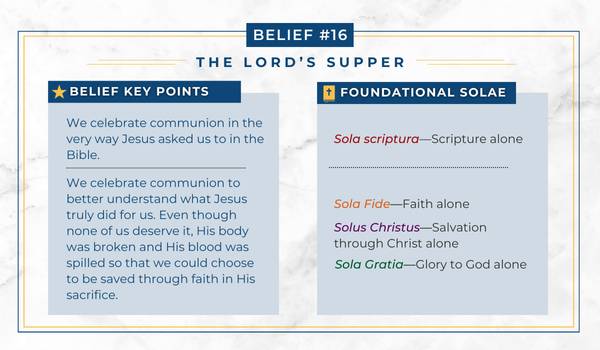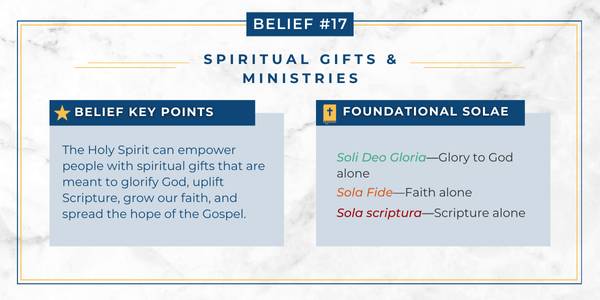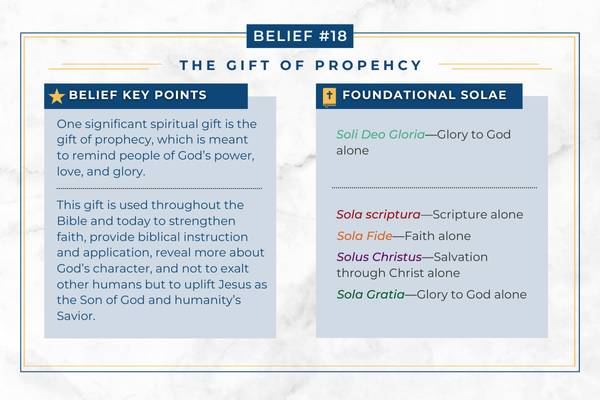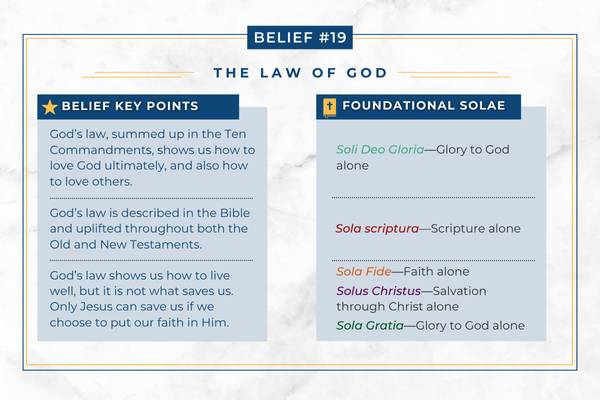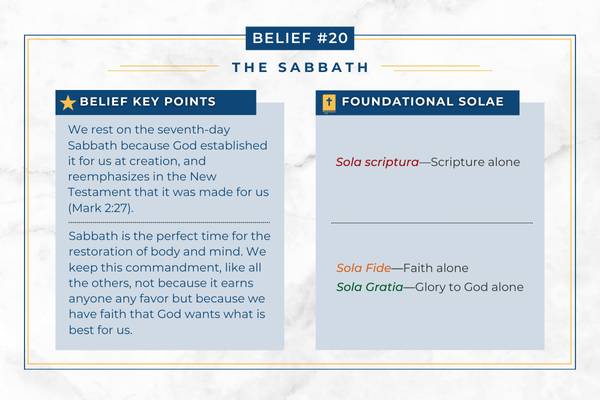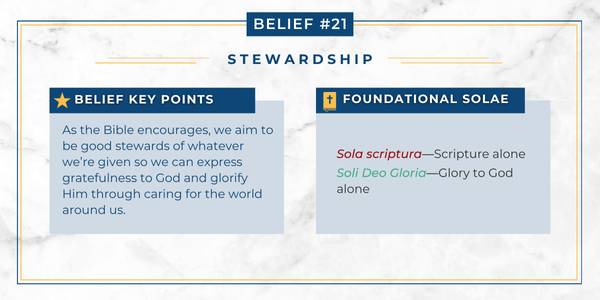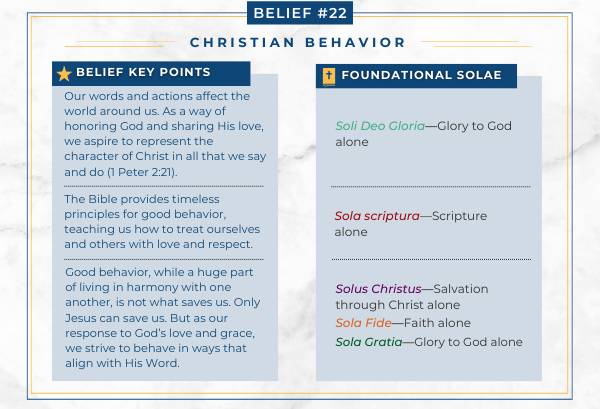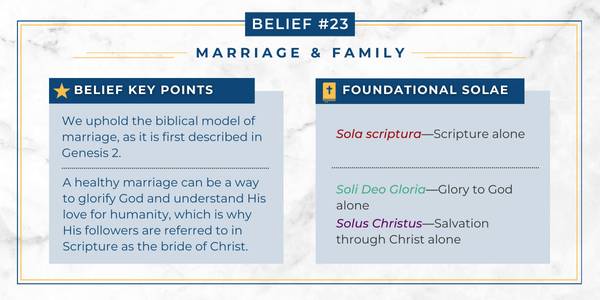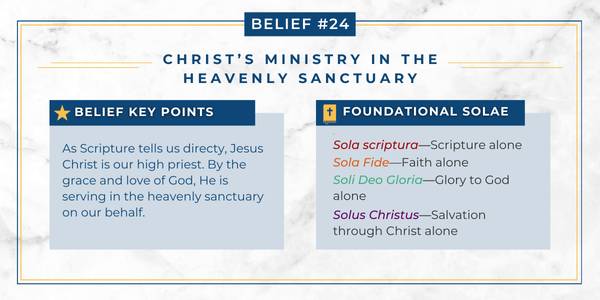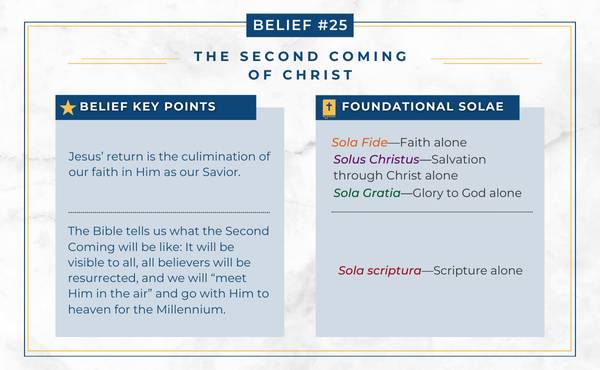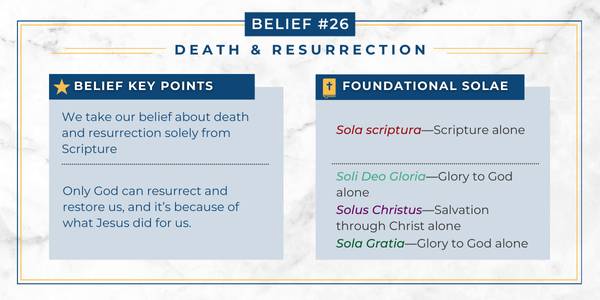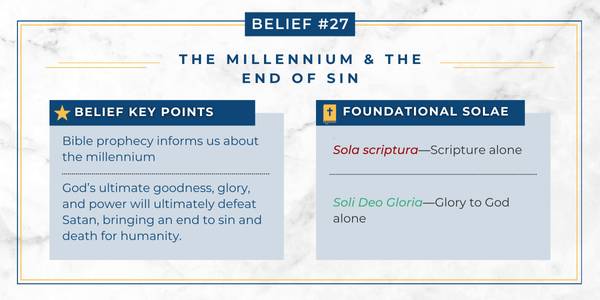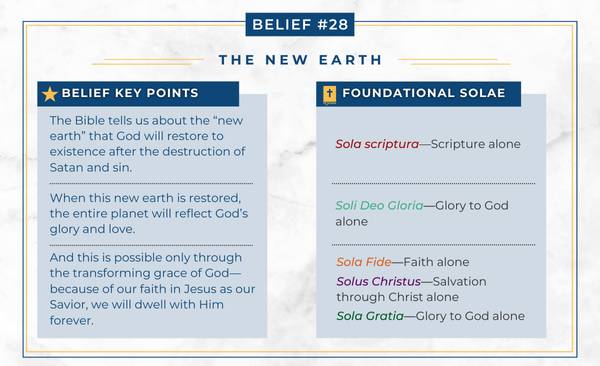Since its organization in 1863, the Seventh-day Adventist Church has identified as a Protestant denomination of Christianity.
While a few Adventist beliefs differ from other mainstream Protestant denominations, all our beliefs are built upon the original principles of the Protestant Reformation—the five solas, or five solae: sola scriptura (Scripture alone), sola fide (faith alone), solus Christus (Christ alone), sola gratia (grace alone), and soli Deo gloria (glory to God alone).
These theological concepts are foundational in how we approach worship, Bible study, church governance, evangelism, and daily life. To get an idea of what this looks like, we’ll go over:
- What does it mean to be a Protestant?
- The role of Protestantism in Adventist history
- How Protestantism is reflected in each Adventist belief
First, we’ll review what makes a person or a church “Protestant” to begin with.
Defining Protestantism—What does it really mean to be a Protestant?

Image by Andreas Breitling from Pixabay
The word “Protestant” is typically traced back to what we now call the Protestant Reformation.1 But the label of “Protestant” didn’t emerge until well after this 16th-century movement was in full swing.2
Since the 20th century, however, being a Protestant essentially means that you uphold the 5 core beliefs that fueled the Protestant Reformation:3
- Sola scriptura—Scripture alone
- Sola fide—faith alone
- Sola gratia—grace alone
- Solus Christus—Christ alone
- Soli Deo Gloria—glory to God alone
Sola scriptura declares that only the Bible is the ultimate standard of spiritual authority, revealing God and His will for us. No one can add to it, take away from it, or take its place. Everything else we read, hear, say, or do is meant to reflect it, lead to it, or help us understand and apply it.
The other four solae have to do with salvation:
- Sola fide: Faith in God alone is what saves us—nothing additional is needed from anything or anyone else. We receive His salvation not by any of our own merits, not by the influence of others’ prayers or petitions, and not by gaining the favor of a religious institution. Our salvation is ultimately our choice, using our God-given free will. It’s based on a sincere individual decision to place our faith in God (John 3:16-18; Romans 10:9-10; Ephesians 2:8-9).
- Sola gratia: Because “all have sinned” (Romans 3:23, ESV), it’s only because of God’s grace that we can be saved.
- Solus Christus: And this grace is made available to us only through Jesus Christ and His sacrifice. He is our High Priest (Hebrews 4:14-16).
- Soli Deo Gloria: And all of this is offered to us because of our Creator God’s goodness, power, and unfailing love—to Him be all the glory.
It’s true that Scripture, faith, God’s grace, God’s glory, and Christ as our Savior are certainly among the beliefs of most Christian denominations, including Catholicism. The difference is in the “sola”—alone. The five solae remind us that nothing else needs to be added to the process God established to save us.
How the Advent movement paralleled with the birth of Protestantism
When the Advent Movement began in the United States in the early 19th century, most of its participants were already devout Protestants.
This theological revival was first known as the Millerite Movement, named after William Miller, who began studying Bible prophecy after surviving a close call in the War of 1812. While studying the 2300-day prophecy in Daniel, he concluded that Jesus’ Second Coming (or the Second Advent) would be literal, and it would be very soon.
The Millerite Movement ended in 1844 with what is now known as the Great Disappointment. One of Miller’s followers, Samuel Snow, suggested a specific date for Christ’s return, based on the timing of the Old Testament’s Day of Atonement. When that day came and went, many Millerites lost hope.
But there were also several believers whose faith remained strong. They went back to their Bibles to see where they may have gone wrong in determining the timing of Christ’s return.
Collectively, they still found that Scripture indeed supported a literal and imminent second advent.
But they also agreed that setting a date had been the wrong move, and that the exact timing of Jesus’ return was determined by God alone (Matthew 24:36).
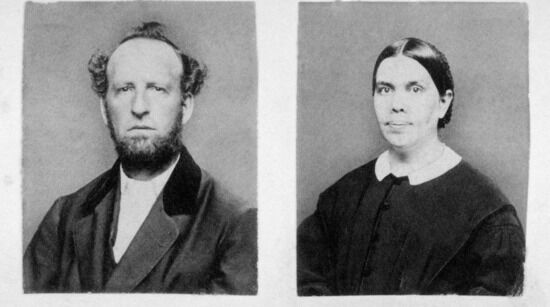
James and Ellen White – Photo courtesy of the Ellen G. White Estate
They kept studying together, sharing and discussing all their discoveries and re-discoveries. So the Advent Movement continued.
Most of these Christians who kept meeting together—including founders of Adventism like Ellen G. White, James White, and Joseph Bates—were already part of Protestant Christian congregations in their respective areas. And like Martin Luther when he became convicted about reforming his church, they had no intent on leaving their faith communities behind.
They hoped that sharing what they’d learned would benefit and grow their churches.
However, as they discovered more and more things about prophecy, God’s Law, and Christ’s Second Coming, they found themselves at odds with their congregations. Many of their newfound convictions differed from what most preachers taught from the pulpit.
But that didn’t stop them. They were intent on upholding biblical principles—which, as part of their religious background, already included the five solae of the Protestant Reformation.
None of the beliefs that differed from their former churches had to do with those foundational truths.
In fact, those in the Advent Movement were exemplifying sola scriptura—they chose to remain loyal to what they found in their Bible study instead of setting their convictions aside for the sake of church membership. They felt that the Bible alone should be the basis of belief, not church tradition. So if we learn things from Scripture that differ from what we understood before, it makes sense to embrace it and encourage further study.
That’s why Bible study was, and continues to be, such an emphasis within Seventh-day Adventism. This drive to keep learning is what led early Adventists to discover buried truths about the Second Coming of Christ, the Sabbath, Christ’s ministry in the heavenly sanctuary, and what happens after death.
All in all, we realize that there will always be more to learn about the infinite God we serve.
And along with this continual emphasis on sola scriptura, let’s look at all the ways Adventist beliefs reflect the principles of Protestantism and share commonalities with other Protestant denominations.
The principles of Protestantism represented in Adventist beliefs
The 28 Fundamental Beliefs of the Adventist Church are meant to sum up how we interpret and apply Scripture. They collectively lift up the Bible’s authority, salvation by faith, the grace of God, Jesus as our Savior, and God’s unsurpassable glory.
Let’s look at how each of these beliefs are founded upon the five solae.
Belief #1—The Bible’s ultimate authority
As expressed in the first belief in the list, Adventists regard the Bible, the Word of God, as the standard of truth. We believe that both the Old and New Testaments make up the Holy Scriptures, revealing God’s power, His glory, His love, and His will for humanity. And its principles will always be relevant for spiritual guidance on doctrine, morals, and lifestyle (2 Timothy 3:16).
This also means that anything else we read, watch, or hear, while it may be helpful and important, will never supersede the Bible. Just like reformer John Calvin put it, we regard the Bible as “superior to all human opinion.”4
Beliefs #2-5—The Trinity/Godhead
The Seventh-day Adventist Church is a Trinitarian denomination, and the biblical concept of the Godhead is explored in our next four beliefs:
- The Trinity (Belief #2)
- God the Father (Belief #3)
- God the Son (Belief #4)
- God the Holy Spirit (Belief #5)
Together, these statements declare the glory and power of our triune God, as well as the roles of each member of the Godhead. This includes upholding the divinity of Jesus Christ, and how faith in Him alone is what links us to God’s plan of salvation.
Adventists uphold the same views about the Trinity that many Protestants do: that three distinct entities (Father, Son, Holy Spirit) make up one single God.
Calvin had a fitting way of describing the Trinity that resonates with how Adventists understand it:
“. . . [T]he Father, Son, and Holy Spirit, are the one God; and that nevertheless the Son is not the Father, nor the Spirit the Son, but that they are distinguished from each other by some peculiar property.”
And their titles indicate their roles as part of the Godhead and help us understand them:
- God the Father is the Creator and overseer of everything (1 Corinthians 8:6).
- Jesus came to the earth as a human to be “God with us” and to show us God’s character. He saved us from our sins by dying on the Cross, and He lovingly serves humanity as our mediator, or high priest, in heaven (Hebrews 7:25, Romans 5:8).
- The Holy Spirit is the power that influences and guides us when we allow Him to. It’s how God speaks to us and dwells within us (John 14:16-17, 26; Romans 8:11; 1 Corinthians 3:16; 6:19).
Let’s take a moment to look closer at our fourth belief about Jesus, the Son, which emphasizes solus Christus.
God the Son
Stemming from the concept of the Trinity, Adventists and the majority of other Protestant churches uphold that Jesus is fully divine, even though He temporarily gave up all His divine abilities, advantages, and privileges while He lived as a human among us (2 Peter 1:1, John 8:58, John 20:24-28).
He has the power to forgive us of our sins (Matthew 9:2-6; Mark 2:5-10, Luke 7:47-50), to save us through His death on the Cross (John 3:16; Romans 5:9; 1 Peter 2:24; 1 Corinthians 15:3-4; Ephesians 1:7; Colossians 1:20), and to serve humanity as our High Priest in heaven (Hebrews 3:1; 4:14-15; 7:24-25; 8:1-2).
That’s how Christ alone is our only hope. It is only because of Him that we can be saved and redeemed.
Belief #6—Creation
Adventists believe in the biblical account of creation—that God Himself formed our world, and that all its life came only from Him.
According to Genesis 1, He took a “formless and empty” (verse 2, CSB) conglomeration of matter and, over the course of six days, turned it into a perfect home that was “very good indeed” (verse 31, CSB) for humans, plants, and animals.
Belief #7—The nature of humanity
As the Bible tells us, we believe that God originally created humanity “in His own image” (Genesis 1:27, CSB). We also acknowledge, however, that by using the freedom of choice God gave us, we were enticed into exploring our own ways and disobeying God’s loving instruction. This allowed sin to enter our world and corrupt our existence (Genesis 3:7, 14-19, 22-24).
Because of this, we need a Savior or we’d be lost to sin’s ultimate consequences. So it is only by faith alone (Philippians 3:9) in Christ alone (John 3:16) that we can be redeemed from this fallen nature and receive salvation by the grace of God.
Belief #8—The Great Controversy
The “Great Controversy” is a phrase Adventists use to describe the all-encompassing spiritual conflict of good vs. evil that the Bible reveals to us. It’s about considering the origin and implications of sin (Revelation 12:7-13), how this spiritual warfare has affected humanity throughout history, God’s plan to save us from it, and how the Bible’s prophecy can give us hope in Christ’s ultimate victory over Satan (Revelation 20).
We feel it’s important to understand this big picture and to be keenly aware that our true “struggle is not against flesh and blood, but against…the cosmic powers of this darkness, against evil, spiritual forces in heavens” (Ephesians 6:12, CSB).
And our only hope for victory over this epic battle is through faith, which is like our armor (Ephesians 6:13-18), in Jesus Christ, who shared in our human experience, “so that through His death He might destroy the one holding the power of death—that is, the devil” (Hebrews 2:14, CSB).
Belief #9—The life, death, and resurrection of Christ
The Bible reveals the love of God to us in the Gospel story of Jesus as our Messiah. We can find the messianic prophecies in the Old Testament, which point forward to the New Testament’s records of Jesus’ earthly ministry.
Born into our sinful world, Jesus lived the perfect life we failed at. And He did this through a constantly-nurtured faith in God, His Father. We see this as an example of the kind of faith we are to strive toward.
And though Jesus succeeded where we failed, He died the death we deserve—then conquered death through His resurrection. And this, as the apostle Paul reinforces, is the foundation of our faith (1 Corinthians 15:14).
Belief #10—The experience of salvation
Ultimately, it’s God’s grace and mercy that make salvation available to us by faith alone in Christ alone (Romans 3:24; Ephesians 2:8-9). Since we already failed in Eden at staying loyal to our Creator, breaking God’s perfect Law of love, we condemned ourselves to the destruction sin causes. If it weren’t for the grace of God, we’d be lost forever.
This core concept of Protestant doctrine allows us to live with the assurance that if we sincerely choose Jesus as our Savior and place our faith in Him, He can save us and will save us. And He’s the only one who can.
“This is eternal life: that they may know You, the only true God, and the one You have sent—Jesus Christ” (John 17:3, CSB).
There is no way to save ourselves by our own efforts (Romans 3:20-23, 27; Galatians 2:16). And apart from personally deciding to not to follow Him, there is nothing anyone can do to take away our salvation (John 10:28-29; Romans 8:38-39; 1 Peter 1:3-5).
Belief #11—Growing in Christ
And a sincere faith in the saving grace of God and the sacrifice of Christ has an effect on our lives. That’s why—because we are saved—we allow ourselves to be led and changed by the Holy Spirit.
So we aim to glorify God in all aspects of our lives (1 Corinthians 10:31). As Colossians 3 describes, because of our faith in Christ, we “have been raised with Christ” and want to set our minds on “things above, where Christ is” and “not on earthly things” (verses 1-2, CSB).
That’s why we make an effort to “put to death what belongs to [our] earthly nature” (verse 5, CSB). And instead, we aspire to “put on the new self,” opening ourselves up to be “renewed in knowledge according to the image of [our] Creator” (verse 10, CSB).
Belief #12—The church
As the Bible tells us, the body of Christ includes all believers in Jesus—the Christian church as a whole, no matter the denomination (1 Corinthians 12:12-14, 27; Colossians 3:11).
Adventists believe that, despite any differences in doctrines or practices, we are all united by our faith in Jesus Christ, and in accepting the grace of God and acknowledging His glory, as we continue to learn about Him through Scripture.
Belief #13—The remnant and its mission
Throughout the Bible, the idea of a “remnant” of believers is a recurring theme (Isaiah 10:20-21; 37:31-32; Zephaniah 3:12-13; Romans 11:5; Revelation 12:17; 14:12). This refers to a group of people who remain faithful to God, even when the rest of the world does otherwise.
The characteristics attributed to remnant believers in the last days are that they will “keep the commandments of God and have the testimony of Jesus Christ” (Revelation 12:17, NKJV).
Collectively, alongside all believers, Adventists aspire to reflect these remnant characteristics and to cling to their faith in Christ alone, even in the face of difficulty, opposition, or persecution.
Belief #14—Unity in the body of Christ
As part of Jesus’ Church on earth, uphold Scripture’s description of how the “body of Christ” should function.
Just because our faith in Christ and His Word unites us in belief, that doesn’t mean we don’t celebrate our diversity of cultures, personalities, perspectives, ages, or talents. Though we are “baptized by one Spirit into one body,” we are to find strength in our differences—because each part of the body has a different yet equal role (1 Corinthians 12:12-27 CSB, see also Romans 12:4-5).
Belief #15—Baptism
Like many other Protestant denominations, Adventists practice baptism by immersion and do not practice infant baptism.
We believe baptism should be the result of an informed, individual choice—just as it was done in the Bible. That’s why we encourage those who wish to be baptized to participate in a pre-baptismal study with a pastor beforehand.
We see baptism as a person’s testimony of both sola fide and solus Christus. Baptism by immersion symbolizes dying to sin and accepting the power of Christ’s resurrection to free us from sin’s eternal consequences (Romans 6:3-6; Colossians 2:12).
Belief #16—The Lord’s Supper
Communion, or the Lord’s Supper, is a special ceremony that commemorates Jesus’ meal with the disciples before He went to the Cross. It’s an act of solemn appreciation for what Jesus went through for us, also acknowledging that it is through Him alone that we can be saved.
As we eat bread and drink grape juice, we remember how Jesus said that the bread represents His body, and the drink represents His blood (Matthew 26:26-30; Mark 14:22-26; Luke 22:14-20).
Like other Protestants, Adventists don’t believe in transubstantiation, which is the belief that the bread and juice physically become the body and blood of Jesus.
Belief #17—Spiritual gifts and ministries
As members of the body of Christ, Adventists recognize that the Holy Spirit empowers each individual with different gifts that can be used for the glory of God, which in turn will nurture, strengthen, and grow the body of Christ (1 Corinthians 12:4-11).
These Spirit-endowed gifts, or talents, can be things like wisdom, teaching, discerning, leading, helping, encouraging, and many more (Romans 12:6-8; 1 Corinthians 12:8-10).
Belief #18—The gift of prophecy
Adventists recognize Scripture’s emphasis on one spiritual gift, the gift of prophecy, as something that will be especially needed and utilized as we draw nearer to the end times (Joel 2:28-29; Acts 2:17-18; 1 Corinthians 14:1-5, 39).
It will be one of the Holy Spirit’s ways of glorifying God and uplifting Jesus as the Christ, our Savior and only hope (1 Corinthians 12:3; 1 John 4:1-2; Revelation 19:10).
Belief #19—The law of God
Though we believe that salvation is only possible through faith in Jesus Christ and cannot be earned through works, the Law of God, as the Bible lays out for us, is for our growth, benefit, and enrichment (Psalm 19:7-11; Romans 13:10; 1 John 5:3). It teaches us how to love and glorify God, and also how to love and live in harmony with others (Matthew 22:37-40).
Belief #20—The Sabbath
Adventists emphasize and uphold the biblical Sabbath God established right after He created the world (Genesis 2:2-3). We aim to keep this weekly Sabbath just as the Bible instructs us to in the fourth commandment (Exodus 20: 8-11).
The whole purpose of the Sabbath is to pause from our weekly obligations so we can contemplate and enjoy the glory of God and appreciate what Jesus has done for us (Exodus 20:11; 31:17; Isaiah 58:13-14; Hebrews 4:4). It was meant to be a blessing for humanity (Matthew 12:1-8; Mark 2:27).
Belief #21—Stewardship
We draw attention to the biblical principle of stewardship that God introduced to humanity shortly after creating the world (Genesis 2:15). By being good stewards, we show appreciation and gratitude for what God has provided for us, and we can ultimately glorify Him through managing our lives in a balanced manner (Proverbs 3:9-10; Matthew 25:14-28; 1 Peter 4:10-11; Colossians 3:23-24).
Belief #22—Christian behavior
There are many ways to bring glory to God. Even the way we go about our daily lives can honor Him and show appreciation for the “newness of life” we can experience as baptized Christians (Romans 6:4, CSB).
And what better example in deed and character than Jesus Christ Himself? So Adventists aspire to emulate His love, compassion, and selfless service for others (John 13:34-35; Romans 15:1-3; Ephesians 5:1-2; Philippians 2:5-8; 1 Peter 2:21; 1 John 2:6).
For ideas or instructions on how to behave in a Christ-like manner, the Bible is full of verses that talk about how to be good neighbors and demonstrate the love of God in everything we do (Matthew 5:16; Proverbs 3:5-6; Micah 6:8; 1 Corinthians 10:31; Colossians 3:5-17; Galatians 5:13-14, 16-17, 22-26; Ephesians 4:1-3; Philippians 2:3-4; 1 Thessalonians 5:14-15; James 1:19-20; 1 Peter 2:12; 5:5; 1 John 3:18).
Belief #23—Marriage and the family
Adventists uphold the biblical model of marriage, in which “a man leaves his father and mother and bonds with his wife, and they become one flesh” (Genesis 2:24, CSB).
We also consider a healthy marriage as a way to glorify God, since many passages of Scripture use marriage as a metaphor of the relationship between Jesus Christ and His Church of believers (Isaiah 54:5; 62:5; Matthew 25:1-13; Ephesians 5:25-32; Revelation 19:7-9; 21:2, 9).
Belief #24—Christ’s ministry in the heavenly sanctuary
By emphasizing Jesus’ current divine role as our high priest in the heavenly sanctuary (Hebrews 3:1; 4:14; 6:19-20), it helps understand why and how, by the grace and love of God, salvation is only possible through faith in Christ and His sacrifice.
Belief #25—The Second Coming of Christ
Part of having faith in Jesus means looking forward to His Second Coming (Titus 2:13), which is prophesied many times throughout Scripture (Daniel 7:13-14; Matthew 24:30-31; John 14:2-3; Acts 1:10-11; 1 Thessalonians 4:16; Revelation 1:7).
This event will be the culmination of our faith in Him, and we will finally get to behold the glory of God as Jesus draws all His believers to Him (John 12:32; 1 Thessalonians 4:17).
“For the grace of God has appeared, bringing salvation for all people … while we wait for the blessed hope, the appearing of the glory of our great God and Savior, Jesus Christ” (Titus 2:11, 13, CSB).5
Belief #26—Death and resurrection
Our belief about human death and resurrection is taken solely from Scripture, which tells us that though we are subject to death, it will be as if we are “asleep” in the grave (a state of unawareness or unconsciousness) until Jesus returns at His Second Coming (Ecclesiastes 9:5; 2 Samuel 7:12; Psalm 146:4). At that time, He will resurrect those who have accepted Him (1 Thessalonians 4:16, Revelation 20:6). Those who have rejected Christ, however, will be resurrected after the Millennium (Revelation 20:5).
This reinforces that salvation is available to us through the transformative power of God’s grace, and we receive this grace through faith in Christ alone, the One who has power over death and sin (John 11:25-26; Romans 6:9-10; 1 Corinthians 15:20-22; 1 Peter 2:24).
Belief #27—The Millennium and the end of sin
From Bible prophecy, we find that after Jesus takes His believers to heaven following His Second Coming, they will take part in His 1000-year reign in heaven for 1000 years (Revelation 20:1-6; 1 Corinthians 6:3). During this time, Satan is bound on earth, and after the 1000 years, Christ will confront Satan (Revelation 20:7) and all who side with him, and destroy them forever (Revelation 20:7-10).
This reinforces how God alone is our judge, and it is only through faith in Christ that we can be saved. He is the one who will put an end to all evil, pain, and sadness (1 Corinthians 15:24-26).
Belief #28—The New Earth
Just as the Bible describes, the New Earth is what we look forward to as our eternal home (Isaiah 65:17; 66:22; 1 Peter 3:13; Revelation 21:1-4) after the destruction of sin and the devil. This entire planet will reflect God’s glory in its sinless perfection (Revelation 21:22-27), and it is only through the grace and mercy of God, because of the sacrifice of Jesus Christ, that we have this chance to live with our Savior forever.
Still going strong—lifting up Jesus and the Bible

Photo by Priscilla Du Preez 🇨🇦 on Unsplash
The Protestant Reformation happened over 500 years ago, but the principles that inspired it are timeless. As Seventh-day Adventist Christians, we base our beliefs on the Bible alone, instead of other spiritual doctrines or laws developed by human, earthly powers. (Even if well-intentioned.)
And we will always “protest” any human-made powers that would try to change, downplay, or replace the five core principles of the Reformation—because they express the foundation of our faith. We will forever proclaim:
1. The Bible is our ultimate authority.
2. We can be saved by placing our faith in God alone—nothing else can save us.
3. It is only by God’s grace that we, as sinners, are given the opportunity to be saved.
4. Salvation is possible because of Jesus’ sacrificial death on the Cross.
5. To God be all the glory—He is our Creator who loves us unconditionally and desires our salvation. There is nothing more powerful or more benevolent than Him.
These five beliefs may seem simple, but they make up the cornerstone for Christianity as a whole. We know Who we can trust, why we can trust Him, and how to get to know Him through His Word.
Want to learn more about the history and formation of the Adventist Church? You might enjoy
- “Reformation,” Britannica. [↵]
- “Protestantism,” Britannica. [↵]
- J. Gordon Melton, ed., Encyclopedia of Protestantism (2005), p. xi. [↵]
- Institutes of the Christian Religion, p. 73. [↵]
- Institutes of the Christian Religion, p. 120. [↵]
More Answers
What is the Role of Laypeople vs. the Role of Clergy?
The word “laity” comes from the Greek word laikos, which means “of the people.”
Do Seventh-Day Adventists Have “Rules” For Clothing?
Many religions have guidelines on dress, but what about the Adventist Church? Discover how Adventists choose to dress based on biblical principles.
11 Reasons People Become Seventh-day Adventists
Curious why many people become Adventists? Here are elements of Adventist beliefs, values, and mission often reflected in people’s decisions to join.
What’s the Seventh-day Adventist General Conference Session?
At the General Conference Session, Adventist delegates from around the world gather to assess the state of the organization, pray, and discuss current issues. Here’s how it works.
How Adventists View the End of the World
The end of the world is no fun to think about. But here’s how we can actually find hope and comfort in what’s to come.
What Is an Adventist Medical Missionary?
A medical missionary in the Adventist Church is someone who cares for the medical needs of people as a way of showing the love of Jesus. They may travel to another country, or even just serve in their hometown.
Are Seventh-day Adventists Evangelicals?
According to its origins and definition, evangelicalism is about following Jesus and the Bible and sharing the Gospel through the way we live our lives. Adventists wholeheartedly harmonize with these principles.
Could Anything Keep Me from Becoming an Adventist?
We are each saved through Christ. But when it comes to church membership, are there certain beliefs or expectations to become an Adventist?
Do Seventh-day Adventists Have “Rules”?
We uphold principles we believe will help us maintain a closer relationship with Jesus and His Word. Learn how these principles guide Adventist lifestyles.
Do Seventh-day Adventists Have “Rules” For Marriage?
Around the world, many cultures and religions have various marriage traditions, expectations, or even rules when it comes to choosing a partner, planning the wedding, extended family logistics, or a number of other things.
Can a Seventh-day Adventist Marry a Non-Adventist?
Yes. Seventh-day Adventists are not under any official rules that dictate who they can or cannot marry. This is a personal, life-altering decision between the couple and God.
What Adventists Believe About Alcohol and Tobacco Use
The Seventh-day Adventist Church has historically discouraged the use of alcohol and tobacco. Even before the church started in 1863, its leaders were realizing the negative effects of these substances.
Jewelry—Why Do Many Seventh-day Adventists Choose Not to Wear It?
If you walk into a Seventh-day Adventist church service, you might notice that many people aren’t wearing earrings, bracelets, necklaces, or sometimes even wedding rings.
International Pathfinder Camporee
Youth aged 10-15 in the Adventist Church’s global Pathfinder program look forward to the International Camporee every 5 years. This event brings together Pathfinders from around the world for exciting activities.
How Adventists interpret Bible prophecy
Bible prophecy conjures up a variety of emotions in people. For some, it feels exciting or mysterious.
Moviegoers’ Guide to The Hopeful: The Facts Behind the Film
Learn where and when you can watch The Hopeful and how to get tickets. Already seen it? We’ll uncover the real story that inspired this film.
How Are Seventh-day Adventists Different from Other Protestants?
As a Protestant Christian denomination, the Seventh-day Adventist Church regards the Bible as the ultimate guide and looks to Jesus Christ as the only way to salvation. We do have some differences of belief or interpretation when it comes to topics like Bible prophecy, end-time events, the Sabbath, and a person’s state after death.
How Adventists Handle Death and Funerals
Most Seventh-day Adventist funeral services are similar to those of other Protestant denominations, such as Methodists, Baptists, or Presbyterians, but you might find a few differences or unique nuances.
Adventist Culture
Many Seventh-day Adventists adhere to specific lifestyle principles that can make them stand out from those in other Christian denominations. Whether it’s going to church services on Saturday or eating the popular Adventist entrée of “haystacks.”
Do Adventists Observe Easter-Related Holidays?
Jesus Christ’s resurrection, celebrated on many Easter-related holidays, is central to the beliefs of the Seventh-day Adventist Church. And that means we seek every opportunity to remember it.
An Overview of Seventh-day Adventist Higher Education
The Seventh-day Adventist Church has about 118 tertiary schools around the world. Though many of them are within North America, you’ll also find Adventist universities in countries across the world—places like Croatia, Austria, Brazil, Madagascar, and the Philippines.
The Ten Commandments from a Seventh-day Adventist Perspective
Ever eaten a salad and gotten a big piece of green stuck in your teeth? And you didn’t realize it was there until you looked in the mirror? (Because no one ever told you!)
The Benefits of A Seventh-day Adventist Academy
Adventist academies are high schools (grades 9-12) that are owned and operated by the Seventh-day Adventist Church.
Are Seventh-day Adventists Christians?
Yes, the Seventh-day Adventist Church is a Protestant Christian denomination formed in 1863. Just like other Christians, we believe that Jesus Christ is our Savior and seek to follow the principles of the Word of God.
Adventist Movies: Where Faith and Film Meet
The Adventist Church uses film to share our faith and uplift positive values. Learn more about specific Adventist-produced films and where to find them.
Do Adventists Celebrate Christmas?
In general, most Seventh-day Adventists do celebrate Christmas.
Since our denomination doesn’t have specific guidelines about holidays, it’s up to each member to decide whether to celebrate it based on their personal convictions and study of the Bible.
What Does the Bible Say About Modesty
Seventh-day Adventists and Christians in general try to ensure their outward presentation and lifestyle glorify God. This often involves daily habits like the ways we hold conversations, the ways we dress and accessorize, and the ways we regard other people when we’re out and about.
How Do Adventists Make Movie and Music Choices?
How do Adventists decide what music to listen to and which movies to watch? Learn how Bible principles can help us make better entertainment choices.
Does the Seventh-day Adventist Church Believe in Paying Tithe?
Seventh-day Adventists believe in paying tithe and offerings based on the biblical command and our commitment to being wise stewards of God’s resources. These donations help fund the mission of the Adventist Church by supporting pastors, missionaries, church expenses, and evangelistic projects, among other things.


